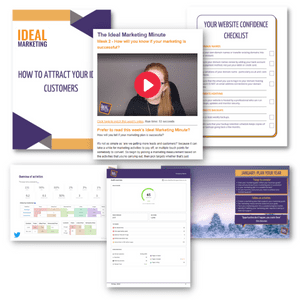The phenomenon of influencer marketing hit the headlines this summer when Unilever announced it would no longer be working with influencers who buy fake followers in an effort to encourage brands to work with them. So what is influencer marketing and what are its pros and cons?
Who are influencer marketers?
Whether they’re on Instagram, Snapchat, YouTube, Facebook or Twitter, influencers are a fact of modern life. Indeed with YouTuber Joe Sugg appearing as one of the celebrities on 2018’s Strictly Come Dancing, the phenomenon has truly crossed over from the realms of youth culture to the mainstream. Joe Sugg has over 8 million subscribers to his main YouTube channel and his sister Zoe Sugg, aka Zoella, is one the UK’s best-known influencer success stories, having built her own brand and 10.6 million Instagram followers since she first recorded a YouTube video in 2009. Galvanised by success stories like this, a whole new industry has sprung up of individuals who are paid by brands to endorse products or services to their loyal followers.
How did influencer marketing start?
Back when the internet was young, lots of people turned their hands to blogging. As some of these bloggers found a significant audience as trusted experts on their chosen subject, brands started to recognise the value of an endorsement from the right blogger. From here, the phenomenon of being able to monetise a blog by providing affiliate links (where the reader clicks on a link to buy a product or service and receives a cut of the sale) was born. As social media evolved to the point where it’s possible to shop from platforms like Facebook and Instagram, a whole new industry was born.
How does influencing work?
As the rise of influencer marketing continued, a new breed of specialist marketing agencies sprang up to connect influencers and brands. Getting signed onto the books of one of the big agencies like Gleam or The Goat Agency is the Holy Grail for an aspiring influencer. Where previously only an A-list celebrity would be able to make money from endorsing products, now any photogenic and social-media savvy individual has the chance to get paid to wear clothes, stay in hotels and eat in restaurants.
A numbers game
When Unilever made their announcement calling for more transparency in the world of influencer marketing, they were reacting to the fact that some influencers had been discovered to have bought followers in the form of bots to boost their all-important social media followings. This is because up until recently, the more followers an influencer had, the more money they could charge for a post. And the amounts of cash changing hands can be staggering. The American celebrity Kylie Jenner topped the 2018 Instagram Rich List compiled by the Instagram scheduling tool Hopper HQ, by commanding a reported $1 million per sponsored post for her 114 million followers.
A change in direction
As the industry evolved and both brands and consumers got wise to fake followers, sheer numbers are no longer a sure fire way for influencers to attract brands. Increasingly, brands are choosing the influencers they work with according to the engagement their posts attract and more importantly, the number of sales that are ultimately generated. After all, unlike heavily-filtered photos and followers, this is something that can’t be faked.
Influencing for smaller brands
With the kind of money involved in paying for a post from big hitter like Kylie Jenner being out of reach to all but the biggest and most luxurious of brands, a new breed of influencer has sprung up. These so-called micro-influencers may not have millions of followers but they don’t charge the fees to match. Also, micro-influencers tend to be more relatable to their audience in terms of their lifestyle, the products they post about and the fact that they often engage with their readers on social media. One successful example is the fashion blogger Kat Farmer, whose blog Does My Bum Look 40 in This? has 100k followers on Instagram and regularly features paid partnerships with high street brands such as M&S and gifted items from small and large brands alike.
The problem with influencer marketing
When we see James Corden in a TV advert for car insurance, we know that he has been paid to endorse a service. With influencer marketing, the lines are more blurred. After all if you see your favourite fashion blogger raving about a new handbag, you might consider buying it. But how would you feel if you knew that the blogger in question had not only been given the bag for free, she had been paid to post about it? You might well feel less inclined to part with your hard-earned cash.
The need for increased transparency
In response to criticism of the perceived dishonesty in this new industry, some influencers including Kat Farmer now make it clear when a post is paid for or sponsored by using hashtags such as #ad, #sponsored and #gift. Indeed some influencers like Jane Cunningham of British Beauty Blogger are leading the calls for increased clarity in what can still be a murky area and even offer alternative non-affiliated links to products. The Advertising Standards Authority do have rules on how sponsored content should signposted, but unfortunately they are not always adhered to.
Authenticity is key
There should be no reason why accepting payment to post about a product online should be considered wrong, as long as the fact that a financial transaction has taken place is made clear. Over time, the influencers who enjoy success will be those who remain authentic, as those who undermine their own brand by accepting money to endorse anything at all will be quickly unfollowed by their increasingly savvy readership.
Influencing for small businesses
Whether you’re a huge multinational company like Unilever or a fledgling local business, using influencers can be an effective strategy. The key is to do your homework and find a partner who genuinely fits into your brand values and has the followers to match.
Marketing advice for small and medium-sized businesses
To find out more about how we can help your business grow, give us a call today on 01858 374 170 or email info@idealmarketingcompany.com.

Louise is an experienced and versatile copywriter whose passion is bringing any subject to life through the written word. She thrives on using her imaginative approach to identify and implement exciting PR opportunities for clients. A career spent coming up with creative content for tight deadlines in consumer magazine journalism and PR means Louise doesn’t know the meaning of the term ‘writer’s block!’







